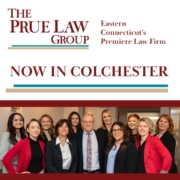Wills vs. Trusts: Which Estate Planning Tool is Right for You?

By Attorney Evelina M. Ruszkowski
When planning for your family’s future in Connecticut, one of the most important decisions you’ll face is choosing between a will and a trust—or determining if you need both. As estate planning attorneys serving eastern and central Connecticut for over 40 years, we guide families through this crucial decision every day.
Understanding the Basics: Wills vs. Trusts
A will is a legal document that directs how your assets will be distributed after your death. It names an executor to handle your estate and can designate guardians for minor children. However, wills must go through probate court, which can be time-consuming and public.
A trust is a legal arrangement where you transfer ownership of assets to a trustee who manages them according to your instructions. Trusts can operate during your lifetime and continue after your death, often avoiding probate entirely.
When a Will Makes Sense
For many Connecticut families, a will provides sufficient estate planning protection. Wills work well when you have:
- A relatively simple estate under $200,000
- Primary assets like a family home, bank accounts, and personal property
- Young children who need guardian designation
- Specific personal items you want to leave to family members
Wills are typically less expensive to create initially and easier to understand. They’re also essential for naming guardians for minor children—something trusts cannot do.
The Trust Advantage
Trusts offer powerful benefits that make them attractive for estate planning, particularly for Connecticut residents concerned about privacy and efficiency:
Probate Avoidance: Assets in a trust bypass Connecticut’s probate process, saving time and keeping family matters private. This is especially valuable given Connecticut’s probate court requirements.
Incapacity Planning: Unlike wills, trusts continue operating if you become incapacitated, ensuring seamless asset management without court intervention.
Tax Benefits: Properly structured trusts can reduce estate taxes—particularly important as Connecticut maintains its own estate tax with a lower exemption than federal limits.
Medicaid Planning: For families concerned about long-term care costs, certain trusts can help protect assets while maintaining Medicaid eligibility under Connecticut’s Title XIX rules.
Do You Need Both?
Many comprehensive estate plans include both documents. A trust handles your major assets, while a “pour-over will” catches any assets not transferred to the trust and addresses guardian nominations.
Making the Right Choice for Your Connecticut Family
The decision between wills and trusts depends on your specific circumstances:
Consider a will if you have:
- A straightforward estate
- Limited assets
- Young children requiring guardian designation
- Budget constraints for initial planning
Consider a trust if you have:
- Assets exceeding $200,000
- Real estate in multiple states
- Privacy concerns about probate
- Family members with special needs
- Business ownership interests
Expert Guidance Makes the Difference
Connecticut’s estate planning laws are complex, and cookie-cutter solutions rarely serve families well. Our experienced team combines deep knowledge of Connecticut’s legal landscape with personalized attention to your family’s unique needs.
We help eastern and central Connecticut families navigate these important decisions through collaborative planning that considers your current situation, future goals, and family dynamics. Whether you need a simple will, sophisticated trust planning, or a comprehensive estate strategy, we’re here to guide you through every step.
Take the Next Step
Protecting your family’s future starts with understanding your options. Schedule a consultation with our estate planning team to discuss whether a will, trust, or combination approach best serves your Connecticut family’s needs.
Ready to secure your family’s future? Contact The Prue Law Group today to discuss your estate planning goals with our experienced Connecticut attorneys.














